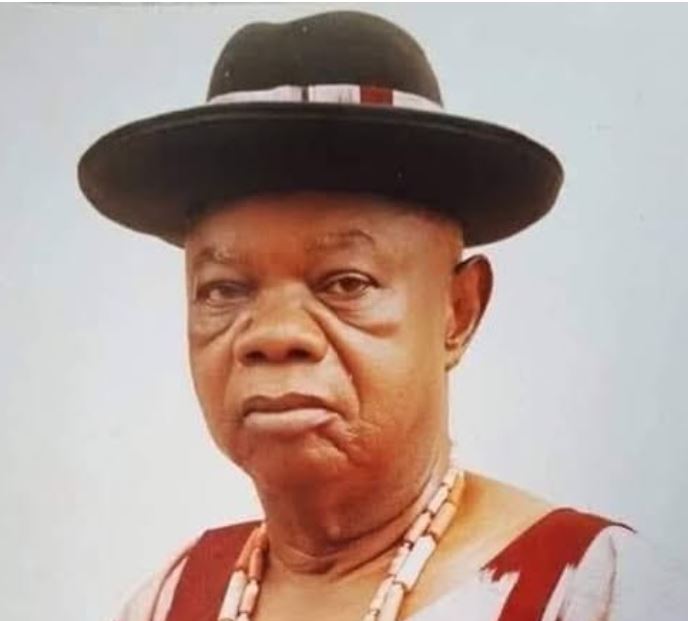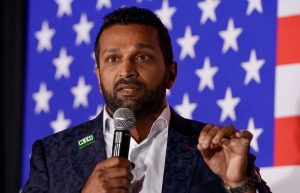Breaking news Chief. Mike Ejeagha, The gwo gwo gwo ngwo crooner is dead
On the evening of Friday, June 6, 2025, at exactly 8:00 p.m., a great silence descended upon the world of African music. The 32 Garrison Hospital in Enugu bore witness to the final breath of a man whose voice had carried the soul of the Igbo people for over half a century. Mike Ejeagha, the Highlife colossus, the folklore maestro, the lyrical sage, bowed to the inevitability of mortality at the ripe age of 95. His exit is not just the passing of a musician—it is the end of a spiritual epoch in African music, an era defined by proverbs, oral tradition, and an unwavering fidelity to cultural roots.
For many Nigerians, especially the Igbo-speaking people of southeastern Nigeria, Mike Ejeagha was more than a singer. He was a teacher, a cultural archivist, a moral philosopher whose music served as both entertainment and education. It is fitting that his passing should spark deep reflection—not only on his remarkable life but on what his legacy means for future generations in a world rapidly forgetting its folk wisdom.
Born in August 1930 in Imezi Owa, Ezeagu Local Government Area of Enugu State, Ejeagha’s musical journey was grounded in the oral traditions of his people. He was nurtured on moonlight tales, proverbs, and riddles—elements that would later become foundational to his storytelling style. While the musical landscape of Nigeria was gradually tilting toward Western sounds, the young Mike was more captivated by the musicality of the elders’ speech, the rhythm of folk chants, and the wisdom encapsulated in Igbo adages.
YOU MAY READ
Deadly Silence in Ukum: Villagers Allege Security Agencies Ignored Warnings Ahead of Massacre
His foray into professional music in the 1950s coincided with the golden era of Highlife music in West Africa. But unlike many of his peers who were absorbed by Western harmonies and urban dance rhythms, Ejeagha chose a path less traveled. He fused traditional Igbo storytelling with Highlife instrumentation, creating what would become a sub-genre in itself—”Igbo folklore Highlife.”
It is almost impossible to talk about Ejeagha’s music without mentioning his lyrical dexterity. His songs were not just sonically pleasing; they were doctrinal. Every composition was layered with meaning, often told through parables and cautionary tales. Songs like “Ukwu Nwanyi Bu Ike”, “Omekagu”, “Ikpechakwa Ama”, and “Akuko N’Egwu” were packed with life lessons, rooted in the idiomatic richness of the Igbo language.
Mike Ejeagha was not a man of shallow lyrics. To listen to him was to receive a lesson in ethics, philosophy, and communal living. His music was a conversational bridge between generations—elders nodded in approval, parents took solace, and children were introduced to a form of African wisdom that was fast eroding.
Unlike most pop songs, where the beat often overpowers the message, Ejeagha’s music placed the story at the forefront. His guitar strings were subtle yet elegant, designed to enhance the clarity of the spoken word. He pioneered what could be described as “musical storytelling,” making him a griot of the Igbo nation, an unappointed chronicler of the people’s mores.
One of Ejeagha’s most significant contributions to African culture was his commitment to preserving the oral traditions of the Igbo. Through his body of work, he immortalized the idiomatic expressions that define the worldview of his people. In a country as diverse and fast-changing as Nigeria, this role is nothing short of revolutionary.
His popular radio program, Akuko N’Egwu, which ran on various Eastern Nigerian radio stations, became a staple in many homes. Through it, he archived hundreds of folk stories and songs, creating a compendium of knowledge that generations could draw from. In doing so, Ejeagha not only entertained but also educated and conserved.
The danger of cultural extinction is real, particularly in post-colonial African societies where Western norms often overtake indigenous practices. Ejeagha understood this long before “decolonization” became an intellectual buzzword. His music was a resistance, a declaration that African languages, values, and epistemologies deserve not only preservation but celebration.
In recent years, Ejeagha’s music found new audiences online. His tracks have been digitized and uploaded to streaming platforms, reaching listeners across continents. YouTube documentaries, Spotify playlists, and even TikTok clips began to circulate his deep Igbo proverbs to a global youth audience—many of whom are only beginning to rediscover their roots.
This digital revival has sparked conversations about indigenous knowledge systems and the role of music in archiving history. For young African creatives, Mike Ejeagha stands as proof that authenticity can outlast trendiness, that indigenous sounds can remain eternally relevant, and that local is, indeed, global.
Ironically, at a time when many contemporary Nigerian artists strive for international appeal by incorporating Western lyrics and sounds, it is the purity and cultural specificity of Ejeagha’s music that is resonating anew. His death may close a chapter, but his music ensures that the book remains open.
What did Mike Ejeagha really offer the world? At first glance, his discography presents a beautiful collection of Highlife rhythms and Igbo language mastery. But deeper analysis reveals a moralist, a societal watchdog, and a spiritual guide. His work dissected human nature, spoke truth to power, warned of pride, and exalted humility.
Songs like “Echi Di Ime” (Tomorrow is Pregnant) remind listeners of life’s uncertainty and the need for moral grounding. In “Ka Anyi Si Ebi”, he explores communal living and the ethical codes that bind traditional societies. These are not merely songs; they are philosophical treatises dressed in melody.
YOU MAY READ
APGA Chieftain, Former Anambra Commissioner, Maja Umeh, Is Dead
Ejeagha’s legacy should serve as a blueprint for Nigeria’s educational and cultural institutions. His music belongs in literature classes, his proverbs in ethics textbooks, his storytelling in children’s media. To ignore his contributions is to deny ourselves the wisdom encoded in our ancestry.
According to his eldest son, Emma Ejeagha, the music icon had been battling illness for an extended period. Though he largely withdrew from public appearances, his name and music continued to echo in homes, at traditional gatherings, and across diaspora communities.
The news of his death, confirmed on Saturday, June 7, 2025, has left many in mourning, but also in reflection. Tributes have poured in from cultural organizations, government officials, academics, musicians, and ordinary fans. The Enugu State Government has announced plans for a state-organized memorial service, while Igbo traditional rulers are reportedly considering a ceremonial tribute to honor him as a custodian of their culture.
His funeral arrangements are already being anticipated as a major cultural event—one likely to attract dignitaries, scholars, and fans from across Africa and beyond.
With the passing of Mike Ejeagha, Nigeria and indeed Africa faces a crucial question: Who will take up the mantle of cultural custodian? In an era of musical commodification and lyrical shallowness, will any artist rise to combine entertainment with enlightenment?
Ejeagha’s legacy is not just in the songs he left behind, but in the call he makes to future generations. It is a call to root themselves in their language, to embrace the wisdom of their elders, and to wield the arts as tools for societal transformation.
Music can be more than a beat. It can be a bridge, a library, a moral compass. That is the standard Mike Ejeagha has set. That is the challenge he leaves us with.
The death of Mike Ejeagha is not a loss—it is a graduation into immortality. Legends do not die; they transform. They become the wind in the trees, the wisdom in conversations, the rhythm in festivals. Mike Ejeagha has merely transitioned into the realm of ancestors—those unseen guardians of culture who continue to guide the living.
As we remember him, let us not merely mourn. Let us celebrate the voice that taught us, the guitar that counseled us, and the man who dared to make wisdom fashionable.
Rest well, Onye Egwu. Rest well, teacher of men. Rest well, voice of our people.





